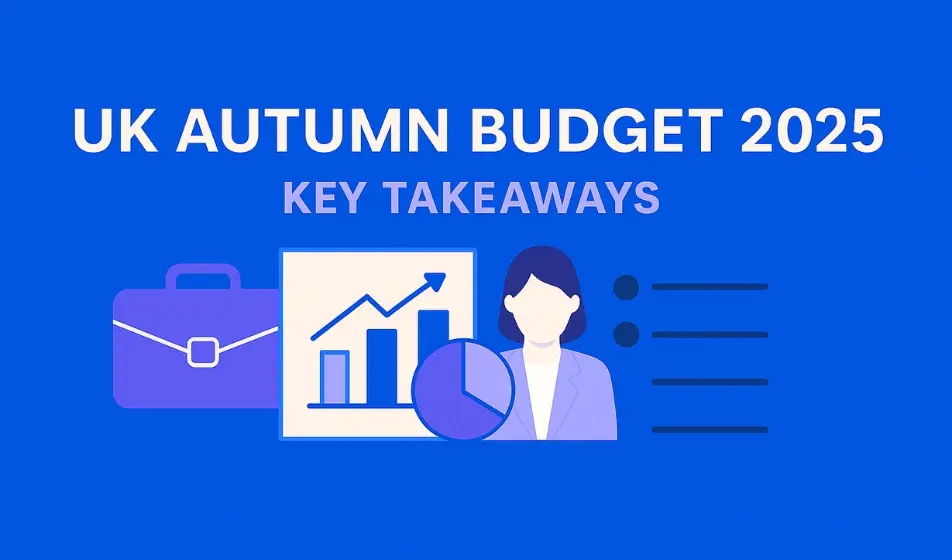In the UK, the new financial year is fast approaching. This makes the next few months some of the busiest and most stressful of the year for HR, founders, execs and finance teams. And with big changes to come to National Insurance, minimum wage and more – the stakes this year are even higher.
For small businesses up and down the country, this means the next two months are crucial. To get ready for the changes, there is a lot to plan for and plenty of work to do. In this blog, we explain what you need to do and where to start.
But first, let’s recap some fundamentals.
Financial year basics: What you need to know
1. What is the financial year and why is it important?
The financial year is the twelve-month period that businesses, organisations and tax collectors use for accounting and budgeting purposes. It begins on the 6th April each year and runs through to the 5th of April the following year. The financial year can also be described as the fiscal year or tax year.
Organisations aren’t legally required to use the financial year for their own bookkeeping purposes. Nonetheless, when you submit official documents detailing tax, turnover, profits and losses to HMRC or Companies House, these must align with the April financial year.
For that reason, most UK companies choose to align their own accounts and budgets with the financial year, to avoid confusion and extra admin.
2. Why does the UK financial year start in April?
In the UK, the financial year has started in April for over 200 years. Today, the only reason it’s in April is because it always has been, and there’s no good reason to change it. Some other countries also use April as the start of the year (e.g. India, New Zealand, South Africa), but others prefer July or August.
Ultimately, any change to the financial year would create huge amounts of unnecessary admin and confusion. For that reason, it’s more sensible to keep things the same.
3. Key dates in the UK financial year:
While 6th April is the official start of the new financial year, it’s not the only important date in the financial calendar. In fact, there is actually no legal requirement or deadline for taxes in April at all, since all financial reporting is due some time after the year is officially over.
Here are the important financial year deadlines you need to know:
- 31st January: Online deadline for annual tax returns for the financial year ending the previous April. This means tax returns for, e.g. the tax year end 2024 (2023-2024 or FYE 2024) were recently due on 31st January 2025. Similarly, returns for the fiscal year end in April 2025 aren’t due until 31st January 2026.
- 31st January: January 31st is also the deadline for the first ‘payment on account’ of the year. This is an estimated 50% of your tax up front, based on last year’s tax return.
- 31st July: Deadline for the second ‘payment on account’ of the year.
- 31st October: Deadline for paper tax returns for the financial year ending in the previous April. Paper tax returns for FYE 2025 will therefore be due on October 31st 2025.
The 2025/2026 financial year for UK HR roles: What you need to know
In a purely legal sense, there’s very little an organisation needs to do before April 6th, since financial reporting for the previous tax year isn’t due until several months after the year is over.
But for most organisations, it’s not just about taxes. The new financial year is the best opportunity to go over your budgets, calculate revenue/outgoings for the year and make some strategic decisions about the future.
All of this requires information, including salaries, budgets, outgoings and more. While finance teams might be running the numbers, it’s generally HR that’s responsible for compiling the information they need to do so. Long story short, this creates a lot of work for both HR and finance.
And this year, that challenge will be uniquely difficult…
“The economic climate has been challenging for several years, and small businesses are really struggling under the burden of this. Without exception, our clients are worried about rising costs, particularly with increases in minimum wage and National Insurance. Overall payroll budgets are being significantly squeezed.”
- Gemma Farina, Owner & Managing Director, GF HR Consulting
In the UK, all employers will have significantly higher costs from April 2025. This is due to the following changes implemented by the UK government in the Autumn 2024 Budget:
- The National Living Wage (NLW) will increase from £11.44 to £12.21 an hour
- The National Minimum Wage (NMW) will increase from £8.60 to £10 an hour
- Employer National Insurance contributions will rise from 13.8% to 15%
- The threshold at which NIC payments apply will also reduce from £9,100 per annum to £5,000
Taken together, this will be the biggest package of cost rises to affect UK businesses in several years. It’s therefore imperative that you understand where the additional funds are coming from and how you’re going to make the numbers add up.
Your 2025 to-do-list: Preparing for the end of the tax year
“Before the new financial year, SMEs should conduct a financial and operational review. Look for efficiency improvements to cut costs, such as automating HR admin or outsourcing payroll.
It’s also important to understand business capacity and plan your workforce, so you can ensure staff levels match business demand. This will prevent unnecessary expenses and help avoid employee burnout and overworking, as this can reduce productivity in the long run.”
- Gemma Farina, Owner & Managing Director, GF HR Consulting
The weeks leading up to the new financial year are always important. But for the reasons we’ve just outlined, they’re even more crucial this year. This is particularly the case for small and one-person HR teams that might be managing much of the company budgets and planning themselves.
So what do you need to do between now and April? To plan your budgets for 2025/26, it’s important to compile accurate information on all your costs for the previous year. These might include:
- Current salaries across the company, including pay bands for any job roles you’re currently hiring for, since these will also affect future budgets.
- All expenses used across the organisation last year, by department and expense type.
- Employment and turnover rates for the previous year. Take note of any teams or pay grades that had a particularly high turnover rate. This may affect future hiring and training decisions.
- Holiday days taken per employee, pay grade and team. You should also consider the total costs of e.g. payments-in-lieu and other related holiday costs.
- Benefits, bonuses and other incentives. If you're struggling to find the budget to afford the tax and wage rises from April, this could be the most obvious place to look.
- Training and L&D budgets, by team, pay grade and employee.
“Efficiency can be another important area to identify cost savings. This could include reviewing job descriptions and roles, streamlining processes, reducing waste and embracing digital tools.
You could also consider adopting more flexible staffing structures such as part-time roles, seasonal roles, fixed-term contracts or job-sharing. These could help manage wage costs and see your business through this challenging period.”
- Gemma Farina, Owner & Managing Director, GF HR Consulting
If you have an in-house finance team, it’ll generally be up to them to decide next year’s budgets and plan for the tax and wage rises from April. If not, there’s a good chance it’ll be up to those in the HR function and the company Founder to work out the approach.
If you’re struggling to work out where the budget will come from, here are some possible solutions:
- Identify waste or unnecessary spending in existing budgets
- Divert funds from lower-priority expenses such as training/L&D budgets, benefits, expenses, etc.
- Implement pay or hiring freezes
- Remove holiday expenses such as payment-in-lieu for unclaimed holiday
- Consider reducing the size of the workforce
Of course, all these options will impact the business - and nobody wants to make decisions like these. But the costs in April are going to have to come from somewhere, and it’s important to be hard-headed about the trade-offs you’re going to have to make.
How to optimise your budgets in 2025/26
It may seem like this year is mostly about finding room in your budgets to absorb the rising costs. But the financial year is also a fantastic opportunity to take a birds’ eye view over the business, consider what’s working and make the changes you need to remain profitable and successful in 2025/2026.
With so much to do, the challenge now for many small and one-person HR teams is simply knowing where to start. Hopefully, the advice in this blog has helped point you in the right direction.
If you want a more detailed roadmap to help with your 2025/2026 planning, check out the guide below:

Author: Matt Rooke
Matt is a freelance tech writer and content manager who specialises in HR and cybersecurity. Over his seven-year career, he's created content of all shapes and sizes for brands such as Dropbox, Microsoft, Heimdal, Learnerbly, NTT, IFS, and many others. His goal is to translate complex topics into straightforward, tangible and practical advice. When not writing, you can usually find Matt geeking out over languages, music or politics.





